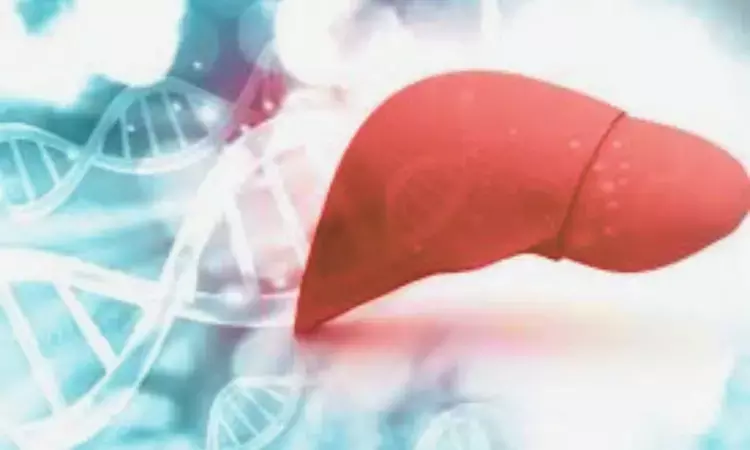- Home
- Medical news & Guidelines
- Anesthesiology
- Cardiology and CTVS
- Critical Care
- Dentistry
- Dermatology
- Diabetes and Endocrinology
- ENT
- Gastroenterology
- Medicine
- Nephrology
- Neurology
- Obstretics-Gynaecology
- Oncology
- Ophthalmology
- Orthopaedics
- Pediatrics-Neonatology
- Psychiatry
- Pulmonology
- Radiology
- Surgery
- Urology
- Laboratory Medicine
- Diet
- Nursing
- Paramedical
- Physiotherapy
- Health news
- Fact Check
- Bone Health Fact Check
- Brain Health Fact Check
- Cancer Related Fact Check
- Child Care Fact Check
- Dental and oral health fact check
- Diabetes and metabolic health fact check
- Diet and Nutrition Fact Check
- Eye and ENT Care Fact Check
- Fitness fact check
- Gut health fact check
- Heart health fact check
- Kidney health fact check
- Medical education fact check
- Men's health fact check
- Respiratory fact check
- Skin and hair care fact check
- Vaccine and Immunization fact check
- Women's health fact check
- AYUSH
- State News
- Andaman and Nicobar Islands
- Andhra Pradesh
- Arunachal Pradesh
- Assam
- Bihar
- Chandigarh
- Chattisgarh
- Dadra and Nagar Haveli
- Daman and Diu
- Delhi
- Goa
- Gujarat
- Haryana
- Himachal Pradesh
- Jammu & Kashmir
- Jharkhand
- Karnataka
- Kerala
- Ladakh
- Lakshadweep
- Madhya Pradesh
- Maharashtra
- Manipur
- Meghalaya
- Mizoram
- Nagaland
- Odisha
- Puducherry
- Punjab
- Rajasthan
- Sikkim
- Tamil Nadu
- Telangana
- Tripura
- Uttar Pradesh
- Uttrakhand
- West Bengal
- Medical Education
- Industry
Young Adulthood Obesity Linked to Liver Disease Risk, But Weight Loss Reverses Effects, Study Finds

Netherlands: Stable or newly developed obesity during young adulthood significantly increases the risk of metabolic dysfunction-associated steatotic liver disease (MASLD). It also raises the likelihood of at-risk metabolic dysfunction-associated steatohepatitis (MASH) and elevated liver stiffness measurements (LSM) in individuals aged 40–80. This is the finding from a recent study published online in Liver International on November 22, 2024.
"In contrast, those who achieved weight loss and transitioned out of obesity did not exhibit an elevated risk, highlighting the potential for weight loss to mitigate these adverse metabolic outcomes," the researchers reported.
Obesity can lead to lasting metabolic changes even after weight loss, potentially impacting liver health. For this purpose, Laurens A. van Kleef, Department of Gastroenterology and Hepatology, Erasmus MC, University Medical Center, Rotterdam, The Netherlands, and colleagues sought to explore the relationship between obesity in young adulthood and the risk of metabolic dysfunction-associated steatotic liver disease, at-risk steatohepatitis, and elevated liver stiffness measurements in a general population.
For this purpose, the researchers analyzed data from NHANES 2017–2020, focusing on community-dwelling participants aged over 40 with a BMI of 18.5 or higher and no history of heart failure. Weight at age 25 was collected through questionnaires and compared to current weight.
The study assessed the controlled attenuation parameter (CAP) and LSM. They examined the associations between changes in obesity status and the risks of MASLD, at-risk metabolic dysfunction-associated steatohepatitis, and elevated LSM, adjusting for demographics and metabolic health factors.
The following were the key findings of the study:
- The study included 4,580 participants: 57% with stable non-obesity, 33% who gained obesity, 2% who lost obesity, and 8% with stable obesity.
- Stable obesity was strongly associated with MASLD (OR: 5.47).
- Gained obesity is also significantly associated with MASLD (OR: 4.68).
- Lost obesity showed no increased risk of MASLD (OR: 1.26).
- Stable and gained obesity were similarly associated with at-risk MASH and LSM ≥8 kPa.
- No residual risk was observed for lost obesity concerning at-risk MASH (OR: 1.05) and LSM ≥8 kPa (OR: 0.85).
- Sensitivity analyses, including changes in obesity over 10 years and weight change stratification by BMI categories, supported these findings.
The study showed that obesity in young adulthood was linked to higher odds of MASLD, at-risk MASH, and increased LSM in the general population. However, achieving weight loss normalized these odds, indicating that neither obesity at age 25 nor a history of obesity after successful weight loss poses a risk to liver health in individuals aged 40–80. Conversely, young adulthood obesity without successful weight loss was associated with higher odds of increased LSM compared to those who developed obesity later, suggesting prolonged exposure to overweight increases risk.
"These findings emphasize the critical need for preventing and addressing young adulthood obesity to support liver health," the researchers concluded.
Reference:
Pustjens, J., Savas, M., Ayada, I., Li, P., Pan, Q., A. Janssen, H. L., & Brouwer, W. P. MASLD, At-Risk MASH and Increased Liver Stiffness Are Associated With Young Adulthood Obesity Without Residual Risk After Losing Obesity. Liver International. https://doi.org/10.1111/liv.16169
Dr Kamal Kant Kohli-MBBS, DTCD- a chest specialist with more than 30 years of practice and a flair for writing clinical articles, Dr Kamal Kant Kohli joined Medical Dialogues as a Chief Editor of Medical News. Besides writing articles, as an editor, he proofreads and verifies all the medical content published on Medical Dialogues including those coming from journals, studies,medical conferences,guidelines etc. Email: drkohli@medicaldialogues.in. Contact no. 011-43720751


